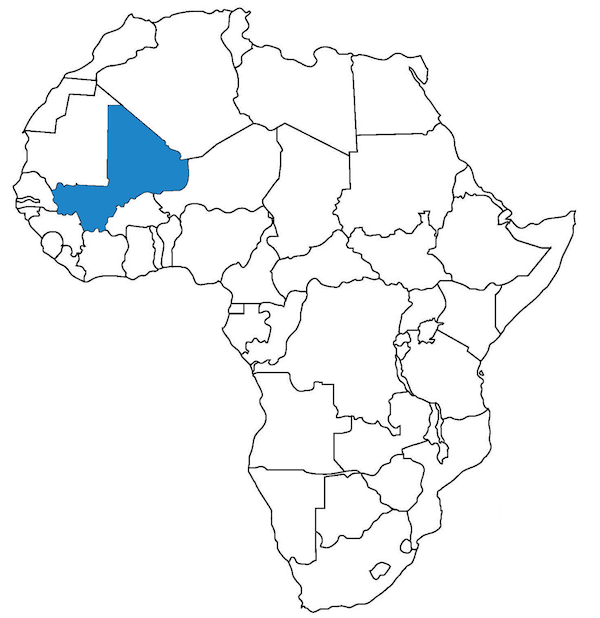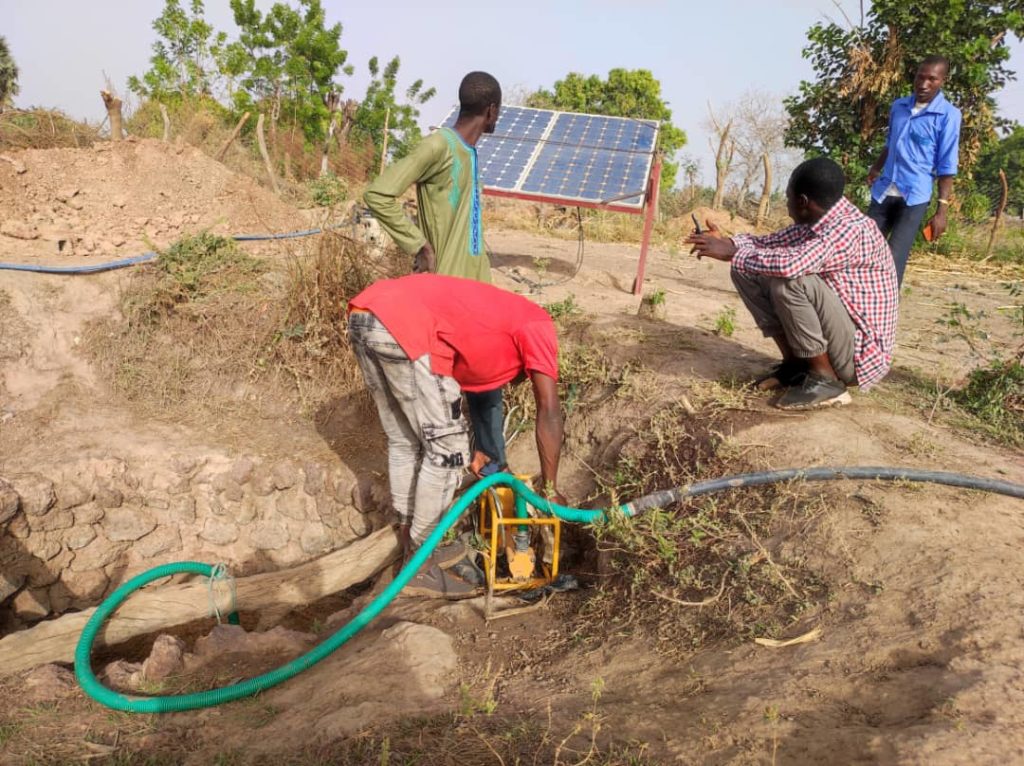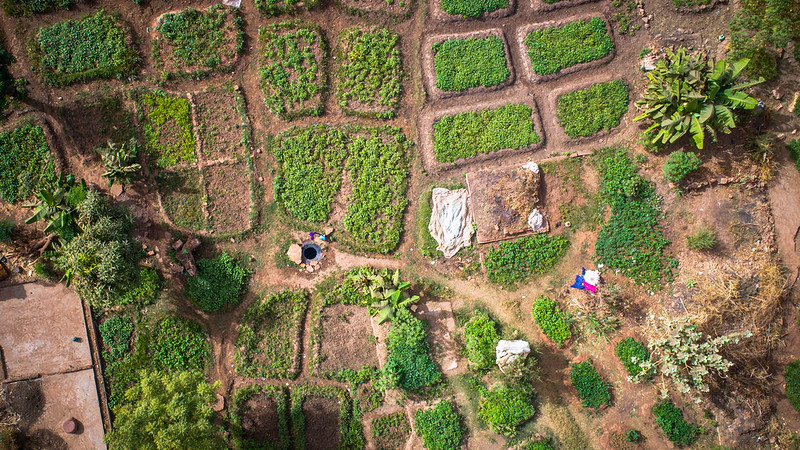ILSSI aims to identify how water access and management can support smallholder farmers to achieve prosperity, improved water and food security, better nutrition and stronger climate resilience.
Opportunities
Small scale irrigation can make a big difference to Malian farmers, giving farmers access to water all year round. This helps stabilize food production and can increase food and nutrition security. Interventions that integrate water, agriculture, and nutrition can boost smallholders’ climate and social resilience.
To support more Malian farmers to access the benefits of small scale irrigation, ILSSI began research activities in October 2019.
DOWNLOAD: Fact sheet on ILSSI activities in Mali (ENG) (FRANÇAIS)
Challenges
The population of Mali is highly vulnerable to water insecurity, food insecurity and undernutrition, all of which can be linked in some way to water stresses and crises. Numerous factors contribute to this vulnerability: water is becoming increasingly scarce, partly as a result of low flows in the Inner Niger Delta. Climate change and weather variability, such as droughts and long dry spells, also pose significant challenges to farmers who rely on rain to water their crops. Recent security crises are also hampering production, markets and investments.

Contributing to solutions
Market Systems and SSI
ILSSI is working with two private sector, solar pump distributors and three international agriculture research institutions in Mali to identify the best approach to strengthen the market-based supply of solar pumps to small scale farmers in Sikasso, Koulikoro and Bamako. Private partners will implement two models for pump supply: sub-distributor small businesses and localized social network agents. IWMI will work with companies to analyze the market segmentation, notably women farmers, to enhance marketing strategies to ‘bottom of the pyramid’ groups. In addition, WorldVeg will build on the market analysis on vegetable seed through action research – facilitating linkages between irrigation equipment suppliers and market off-takers, and assessing ways to enhance profitability and opportunities for seed producer associations. Research and market-based activities are the basis for engagement in multi-stakeholder dialogue platforms. Finally, ILSSI will collaborate with USAID implementers in Mali enhancing resilient market and food systems.
Household water (in)security, nutrition and resilience
IFPRI’s study on irrigation and nutrition in Mali has shown that motor pump irrigation and gravity irrigation both significantly increase household dietary diversity (HDD). The use of motor pumps further increases consumption of fruits and vegetables, oils, spices, and cereals for female-headed households, whereas gravity irrigation does not. IFPRI is assessing the food insecurity experience of irrigating and non-irrigating households and the contributions of irrigation to increased diversity of foods available at local markets, which will build on an earlier analysis on employment, income and household food security, and improved water supply, sanitation and hygiene. IFPRI will also more directly relate access to irrigation to coping with adverse events, such as climate and other shocks and illnesses through a qualitative study. Ultimately, ILSSI aims to provide guidance on how to design nutrition-sensitive, resilience strengthening irrigation investments. A report by World Bank, also published in French, describes nutrition-sensitive irrigation and water management investment approaches for improving nutrition in vulnerable populations and achieving greater impacts on early child nutrition.
Small scale and solar irrigation
IWMI has identified areas in Mali suitable for solar-powered irrigation: the total suitable area varies between 0.69 and 4.44 million hectares, representing between 11 and 69 percent of Mali’s agricultural lands. Solar-powered pumps offer households access to water for multiple uses and can support commercialization of gardens and reduce the water-related labor burden for women, while increasing yield and quality of produce. In addition, IWMI applied Water Accounting tools in Mali to assess potential and risks to water scarcity at higher scales. Now, WorldVeg and the IDSS team at Texas A & M are assessing the intersection of climate change, economic potential, and environmental sustainability in irrigated vegetable production. Private sector partners are using the information about water availability and risks in their marketing strategies. In addition, the information is being shared with decision makers to inform development programs.
Publications and additional resources
- 2023 ILSSI Annual Report – MALI
- Multi-stakeholder dialogues supporting the scaling of inclusive and sustainable agricultural water management in Mali
- Nutrition-Sensitive Irrigation and Water Management
FRENCH: Irrigation et gestion de l’eau tenant compte de la nutrition (World Bank) - Targeting small-scale irrigation investments using agent-based modeling: Case studies in Mali and Niger
- Development of the vegetable seed sector in Mali and opportunities for irrigated Seed production
- Solar irrigation in Mali: Potential to increase food security amid climate vulnerability (ILSSI news)
- Drivers of adoption of small-scale irrigation in Mali and its impacts on nutrition across sex of irrigators (discussion paper)
Project partners
ILSSI is led by Texas A&M University, with the International Water Management Institute (IWMI), the International Food Policy Research Institute (IFPRI), World Vegetable Center, EMICOM, EcoTech Mali, and the Household Water Insecurity Experiences (HWISE) – Research Coordination Network (RCN).




